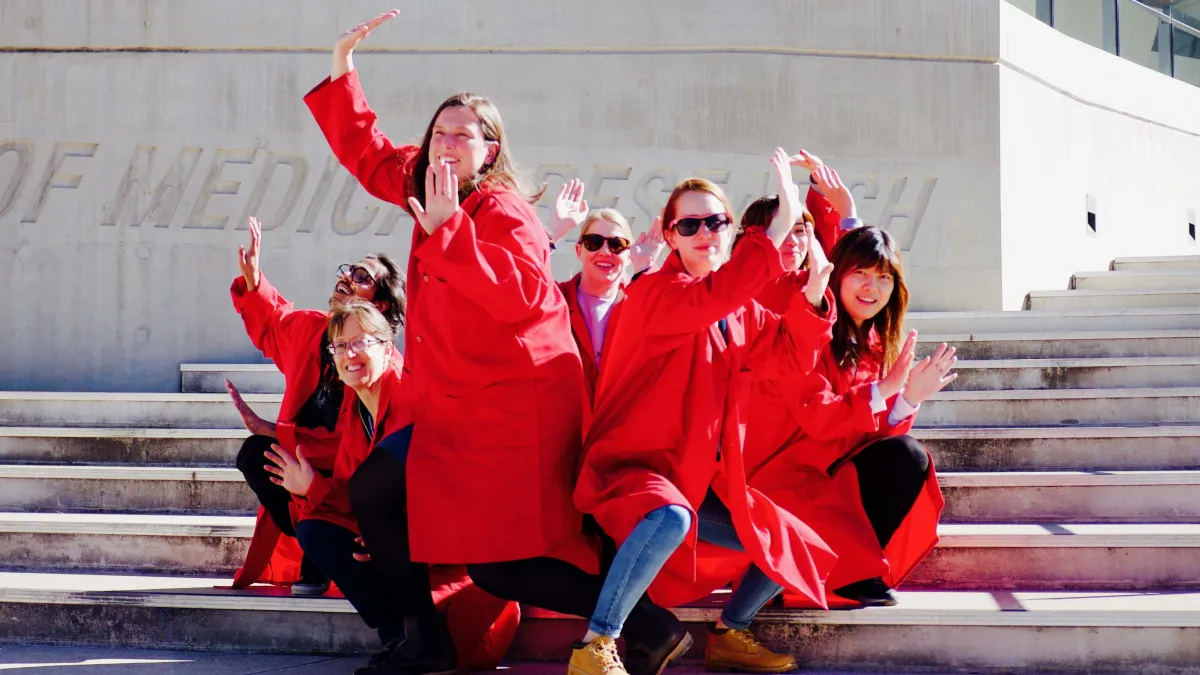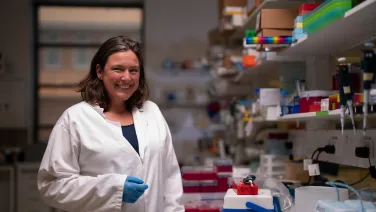The Bruestle Group - Neuroimmunology and Multiple Sclerosis
A special interest of this group is in type 3 immune responses including the CD4 subset of inflammatory Th17 cells, neutrophils and dendritic cells.
Research themes
About
The Bruestle Group - Neuroimmunology and Multiple Sclerosis, is focusing on innate and adaptive immune responses in the central nervous system. A special interest of this group is in type 3 immune responses including the CD4 subset of inflammatory Th17 cells, neutrophils and dendritic cells. Using genetically modified mouse strains they analyse the differentiation and effector function of these cells in vitro as well as in in vivo models. In collaboration with different industry partners, they further investigate these immune cells as new targets for improved therapies in the context of Multiple Sclerosis. The Bruestle Group is also part of “Our Health in Our Hands” a transdisciplinary research program developing personalised approaches for the management of chronic autoimmune conditions such as MS.
Enquiries are welcome from potential Honours or PhD students with an interest in autoimmunity and T cell biology. A variety of projects are available within all of the areas of research undertaken by this Group.











